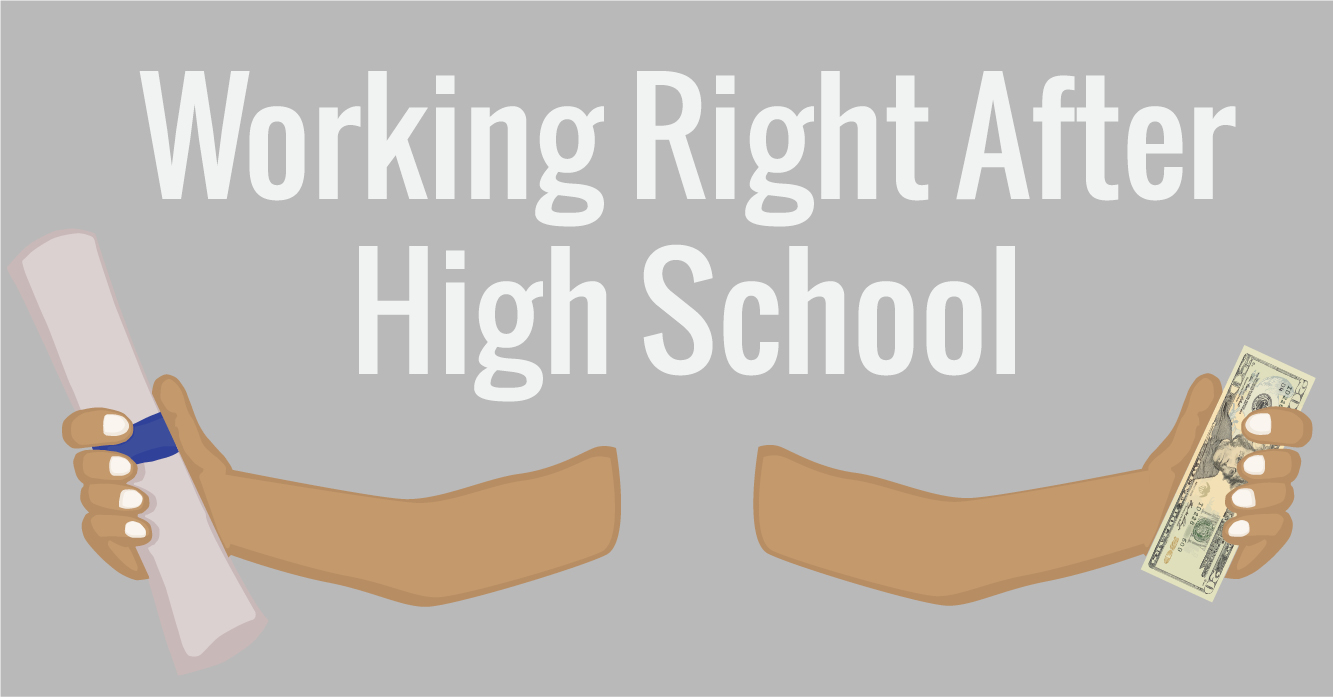Going to college as a young adult, especially right out of High School or Secondary school, you officially are on your own so to speak. You now must learn to manage on your own, whether that means buying your own food, paying rent, or even purchasing a car that you must pay for.
Yes, many have to learn pretty quick that parents have supported you emotionally and financially most of your young life, so now its time to learn some responsibility.
Some of you may say, well I have been working since I was sixteen, going to school and paying my own cell phone bill, gas and car insurance. I will say that is a wonderful start, but many still have mom or dad paying room and board, food and other expenses that honestly you didn’t have the budget for, but that’s what parents are for right.
I remember that conversation with my family the moment I graduated high school, you either go to school or get a job if you live under our roof. I chose to go to college, but I also chose to get a part time job, knowing that although my family financially supported me, I didn’t want to keep asking for money. I was unfortunate to live at home while at college, which saved money, but I had other expenses.

For those who will be working while in college, you may have the opportunity to work full time and go to school full time, which can be an incredible task to manage but achievable. For many you may make the choice to just work full leaving college behind thinking you may not need college after all.
If you have made that choice and said in the back of your mind, I will go back, I promise, I just want to get some work experience. Many who have made the decision never return or return years later, when that degree could have been finished.
There are pros and cons to making that decision and I encourage you the research your options first before making a final decision. Here are some things to think about before making that huge decision of working full time and leaving school or going to school full time working towards a degree.

The age-old argument to not going to school and working full time is that many do and can still be successful in your career, which is true. Education has components that are essential to learning that you may not be able to get in the workforce but can be learned in different ways. College gives you the exposure to be in one place over a course of time which results in your degree. There are some pros and cons to help make that decision:
I don’t want to fail to mention sometimes college is Not an option due to financial or other reasons and for the simple reason you just don’t wish to attend more school, getting right in the workforce.
There is nothing inherently wrong with working full time, many who are successful that have not gone to college, started immediately out of high school.
Those examples of people who don’t have degrees definitely have a story to how they became successful such as they started their own business, they were just plain lucky to land in a role that allowed them to financially set, some had family and friends to help them on their road to success.
I always say don’t compare your journey to someone else’s, you are unique in what your life will be like whether that is personally or professionally.
On the flip side, one may say, where there is no better way to invest in your future then to get an education. Although there is no downside to education in my opinion, education may not always help you professionally. As someone who has both a bachelor’s and Master’s in Business, I can truthfully say it hasn’t been as financially prosperous as I would have thought.
Due to certain factors like the economy, the Job market, recessions and my own personal setbacks. What I am saying is that NO career is perfect, but I also felt it matter what college I went to which could have been a factor in my career. College will allow you to grow if you allow it and going to work full time will allow you grow if you allow it, you have a choice.
Now that I have touched on the pros and cons for working full time and not attending school, let’s explore some for the opposite end of the spectrum.
Going to school can give you the salary potential you need to have a better an average chance to succeed in the job market. All too often employers expect you to have a degree at a minimum a bachelor’s degree before they will even consider you a candidate.
Just know that if those jobs are going to require you have a degree, the hope is they are going to offer you the salary you are looking for and what the market is offering, but all too often employers pay below that.
I have personally seen Job postings for the candidate to have a bachelors minimum, a master’s preferred for $15.00 per hour.
I have found that having a bachelors does give you more leverage in negotiating your salary for a high rate and better terms and having a masters greatly improves those opportunities.
One of the primary reasons people decide to return to school is to accumulate more earnings in the future. That’s why many people call education an “investment” and evaluate the return they will receive from undergoing the journey.
Collegetransfer.net encourages student to do the math, “If it costs $100K to finish your degree over two or more years and you could earn $1M over the next twenty years with the college degree behind you, that would result in having $50K to your W2 per year on average.”


The financial long-term benefits are written everywhere, but when you are in that decision making mode it’s easy to estimate the short-term drawbacks.
Going to college means costs such as tuition, student loans and other costs you may not be used to.
Schools with strong student support services have representatives that can help you understand the costs associated with education, but you’ll want to carefully analyze how those play into your personal financial planning process and overall goals.
Having looked at the pros and cons of going to work or going to school, there are so much more you need to consider, which is will you happy with your decision, do you have those around you to support you and your decision.
I have been my experience that going to work full time instead of college may put you in positions that may not always be that fulfilling and the pay may be lack luster to say the least.
The other side to this is that the job you find instead of going to college may be a job you love and are ok with having for now not ready to make a decision on a career just yet.
Not ready to make a career decision is perfectly ok and natural, I wish I had not rushed into college and really got to experience living life in the workforce a little trying to figure out what I wanted to do and be.
After going to college and studying business, I found out later in life that I really enjoyed computers and should have taken my career in that direction.
I would have also hoped in high school I was provided a little more guidance to what direction or fields were out there so I could learn or at least experiment in different fields, so I see what I liked and don’t like. Business was a fit for me at the time, but I feel it was not the fit I needed for my career, because Business is so broad, I needed something more specific and specialized to have a edge in the job market.
You have made your decision whether that will be going to college or working after secondary school/High school. It may be a little nerve racking to know if you made the right decision and know that you did. Own the decision you made, but ultimately know that decision is not permanent, you can go to college if you are working or go to go work if you are going to school or a combination of both.

Hopefully if this is a decision are you are having trouble with you will seek advice from friends and family, do your research on the job market, weigh the options of going to college or a combination of both. All too often we as people think of decisions as black and white, one or the other and it doesn’t have to be that way.
All of us want to go gain experience, be more valuable in the workforce, whether its now by working full time or going to school and learning those skills eventually taking them on the workforce when finished.
The decision is yours so make it good one and be comfortable with the decision and doing what is right for you.
Whether you want to grow your skills, get picked up by an employer who needs your specific knowledge, earn more qualifications for your CV, or some combination of the three, the My Need to Live community is here to support you.
Join the platform 01 March 2023
01 March 2023
 30 October 2022
30 October 2022

The My Need to Live Support Directory is a resource created by us to help 16 – 24 year olds find the help, support, organisation or practitioner you need to help them with their wellbeing when they need it.
Support directory
Joseph Meyer